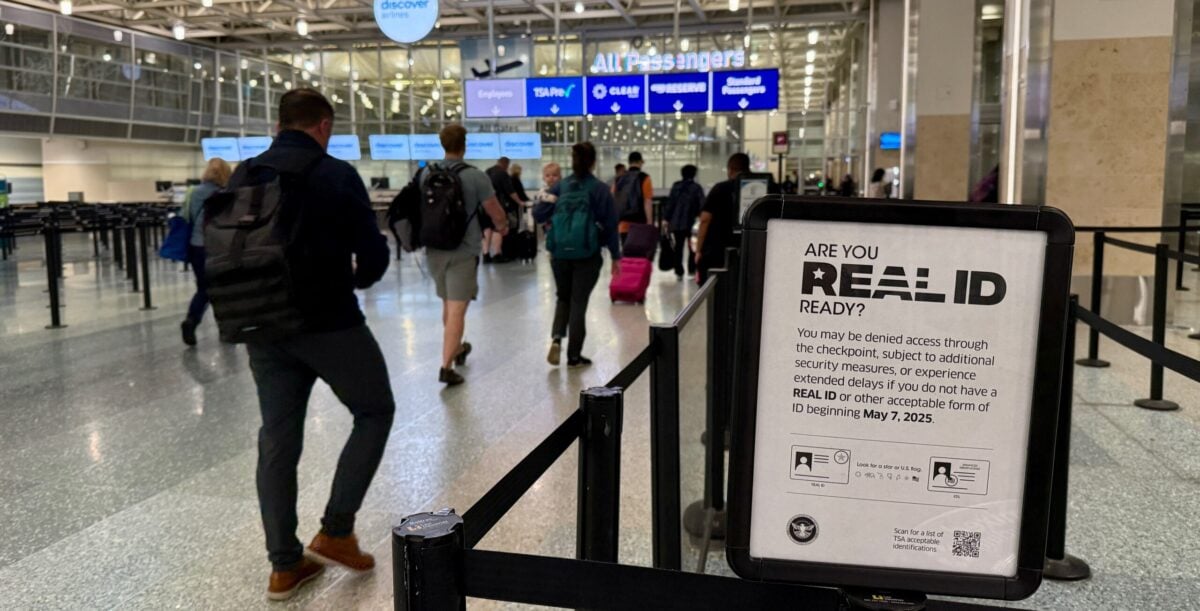A trip to Europe is nearly synonymous with international travel. From London to Athens and everywhere in between, it's got a nearly unbeatable array of amazing capital cities, delicious food, history, and nature – all sewn into a quilt of culture that spans the continent.
But thanks to the ongoing coronavirus pandemic, it increasingly looks like Americans planning trips to Europe will be on hold – and on hold indefinitely. The European Union has voted to ban travelers from America and several other countries while resuming international travel from more than a dozen different countries July 1, citing the poor handling of the fast-growing coronavirus outbreak in the U.S.
Can they really do that? When might those restrictions lift? And what does this mean for countries like Iceland, Greece, Portugal and others that had planned to welcome U.S. travelers soon?
What's Behind the Travel Ban?
It's simple: Europe doesn't want to risk another coronavirus outbreak. And that means it doesn't want U.S. travelers.
Travel between the two continents has been heavily restricted since mid-March. After getting coronavirus largely under control, Europe is ready to once again welcome travelers from outside Europe starting July 1.
But after more than a week of discussions, the New York Times reports that the European Union has decided continue banning visitors from the U.S. and several other countries – including Russia, Brazil, and Qatar – where coronavirus case counts are still on the rise. European officials approved a “safe list” of 15 countries where the coronavirus situation is similar or better than throughout Europe.
And that leaves American out. But for how long?
Officials say they'll revisit the list of approved countries every two weeks. But with case counts rising fast in the U.S., it's unlikely Europe will suddenly start allowing American visitors anytime in the near future.
There's one other complicating factor: These bans are just recommendations. Individual countries could decide on their own whether to throw their doors open to travelers from the U.S. and elsewhere. Will they?
What About Iceland?
Iceland has been a rare source of hope for international travel. The country originally planned to restart all international travel on June 15 before delaying a broader reopening to July 1.
But this new guidance from the European Union again throws that into doubt. It's unclear if (or when) Iceland will reopen to American travelers – Icelandic officials haven't yet said for sure what may happen to their previous plans for a July 1 start.
Earlier this month, Icelandic tourism officials told RUV that the country would “open to non-Schengen arrivals no later than July 1, regardless of whether other countries in the zone do the same.”
But the European Union wields enormous influence. It could hit Iceland and other countries that re-open faster with consequences – including making it harder for Icelandic citizens to travel throughout Europe, and vice versa.
So the restart of travel to Iceland is once again up in the air.
Whenever it's allowed, visitors to Iceland will face some additional testing. A negative coronavirus test (or a 14-day quarantine) is required to get into the country, and Iceland is providing those tests free to the visitors from elsewhere in Europe that are currently allowed.
Starting July 1, Iceland will charge 11,000 krona (about $80 USD) per test, or 9,000 krona ($65 USD) for prepaid testing.
Read more: Questions Surround Iceland's Plan to Restart Travel this Month
Et Tu, Greece, and Portugal?
Leaders in both Greece and Portugal also proclaimed they'd welcome travelers from across the world as soon as July 1. They were two of the best bets for international travel in the near future.
But now, those plans are even less clear than the situation in Iceland. Neither country has signaled for sure whether it will move ahead and reopen despite the European Union's actions.
But there are bad signs for American travelers. After initially promising to reopen to all travelers July 1, Greece said it will block flights from the United Kingdom until at least July 15, citing the country's poor handling of coronavirus.
What does that mean for U.S.-based travelers? And what does it mean for Delta, which planned to restart nonstop service to Athens (ATH) and Lisbon (LIS) as soon as July 16? Delta wouldn't say for sure.
“We are continuing to evaluate our network plans for the months ahead based on demand, government travel restrictions and CDC guidelines,” an airline spokeswoman said late last week.
How About the U.K.?
After Brexit, the United Kingdom is doing its own thing when it comes to international travel. So is Ireland. But that doesn't mean it's easy to visit.
Neither country closed their borders to U.S. citizens, but they implemented major restrictions on all foreign travelers. That includes a 14-day mandatory quarantine upon arrival, mandatory face masks throughout public transport, and social distancing.
Ireland plans to lift that quarantine period for travelers from select countries starting July 9, Reuters reports. The U.K. is planning to do the same. But given the status in the U.S., it's unlikely Americans will get a reprieve.
What's Flying, Anyways?
Even if you're allowed, it will be much harder to find a flight to Europe than this time last year.
Demand for transatlantic travel has fallen to a bare minimum, forcing airlines to cut all but the absolute essentials. Flying major carriers like Delta, American, United, or Lufthansa, expect everything to move through London-Heathrow (LHR), Paris-Charles de Gaulle (CDG), Amsterdam (AMS), and Frankfurt (FRA). That means more one-stop flights to get to your final destination.
And even flights to those massive hubs are harder to come by. Routes to London have been slashed, with just a handful of frequencies each on American, Delta, and United. Virgin Atlantic is aiming to restart service to the U.S. in the next month.
For the foreseeable future, you'll need to depart and arrive from just 15 U.S. airports that are approved by the Centers for Disease Control and Prevention (CDC).
Gearing up for a trip to Greece? You could put your SkyMiles to use, starting at just 32,000 miles roundtrip from New York City (JFK) – if and when that flight is cleared for takeoff.
Interested in exploring Ireland? Are Lingus is operating a limited amount of flights to Dublin from Boston, Chicago, and New York City. Unfortunately, Aer Lingus canceled its brand new flight from Minneapolis-St. Paul (MSP) – and there's no guarantee it will return.
Intrigued by the natural beauty of Iceland? There are only a few U.S. cities that will have hold Icelandair flights just a few times a week, including Boston (BOS), New York City (JFK), and Newark (EWR). But even then, those options may change as the travel picture to Europe clears up.
Bottom Line
A trip this summer or fall to Europe is surrounded with more questions than answers.
At this point, traveling to Europe is likely out of the question for the foreseeable future. And whatever trips are possible will likely be full of complications.
Thrifty Traveler chief flight analyst Jon Shallbetter contributed to this story.






Thanks for the update. My wife and I were planning on traveling abroad for a year or so, departing at the very end of 2020. Although the discussion involves borders closed to Americans, would Americans who are able to quarantine for 2 weeks be allowed to cross borders under those circumstances?
The way that most countries are currently enforcing these bans today? No, even with a 14-day quarantine you likely wouldn’t be allowed entry.
But a lot can and likely will change by late 2020. And as we note, every country is ultimately deciding individually whether it enforces these recommendations or does something completely different – like Croatia.
Just wondering if we know what this will mean for American citizens who live abroad in Europe…?